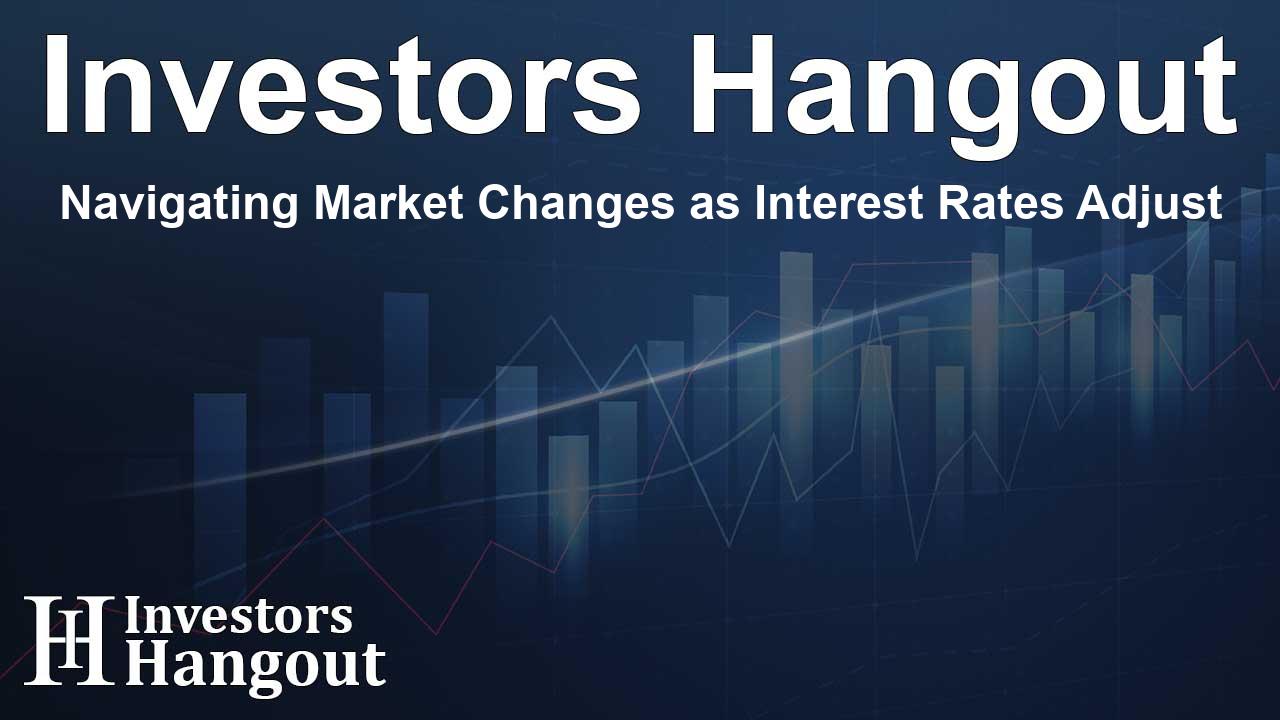Navigating Market Changes as Interest Rates Adjust

Impact of Interest Rate Changes on Investor Confidence
As discussions around interest rate adjustments accelerate, investors are urged to proceed with caution. David Kelly, chief global strategist for JPMorgan Asset Management, recently emphasized the importance of a gradual easing cycle to foster confidence. Cutting rates too aggressively could lead to economic instability, akin to precariously lowering a heavy object from a height—careful and steady action is essential.
Upcoming Federal Reserve Meeting
The Federal Open Market Committee (FOMC) meeting is set to bring a pivotal shift in policy, marking the potential end of a prolonged tightening period aimed at controlling inflation. Recent data from the Consumer Price Index indicates a year-on-year increase of 2.5%, suggesting inflation is inching closer to the Federal Reserve's target of 2%.
Wall Street's Divided Opinion
Despite signs of stabilizing inflation, Wall Street is split on the Fed's approach. Some strategists recommend a cautious stance, particularly regarding the labor market. Optimism persists that while growth may slow, substantial risks of an economic downturn remain low.
Analyzing Resilience in Consumer Spending
Retail sales data released recently indicates the resilience of consumers. Unexpectedly, sales rose by 0.1% in August, with a revised increase of 1.1% for July. This positive trend coexists with a slowdown in job growth, reflecting a complex economic landscape.
The Forecast of Economic Recession
Some experts, like Saira Malik, anticipate that the ongoing cycle of elevated inflation and interest rate hikes may impact consumers significantly, leading to a potential recession within the next few years. Historical patterns suggest that employment rates often deteriorate as recessions commence, posing challenges for indicators of economic health.
Reassessing Investment Strategies
With shifts in interest rates looming, experts from Future Proof encourage investors to reconsider their portfolio allocations. The increase in demand for cash and short-term assets signals a need for strategic adjustments. Lauren Goodwin from New York Life Investments warns that reinvestment risk has become a pressing concern for investors today.
Optimizing Portfolio Allocations
Investment strategies are evolving, with traditional allocations receiving scrutiny. Callie Cox from Ritholtz Wealth Management suggests a proactive approach for long-term investors willing to engage in the market's fluctuations. Now could be an opportune time to realign asset distribution, balancing equities and fixed income without neglecting potential alternatives.
Future Trends in Asset Distribution
This discussion has sparked a reevaluation of conventional portfolio models. The historical 60% stock and 40% bond allocation is being reassessed. Experts advocate adaptable strategies, suggesting that portfolios could incorporate alternative investments, further customizing individual risk profiles.
Investment-Grade Corporate Bonds
Even as predictions about potential recessions arise, investment-grade corporate bonds remain enticing. Whalen, a chief investment officer, believes successful Fed maneuvers to balance the economic scale could yield favorable returns, suggesting a potential 5% return on certain investments.
Frequently Asked Questions
What are the implications of the Federal Reserve cutting interest rates?
The cut could boost consumer and investor confidence but needs to be executed carefully to avoid undermining economic stability.
How should investors adjust their portfolios in light of changing rates?
Investors are encouraged to reevaluate their asset allocations, focusing on flexibility and potentially exploring alternative investments.
What is the current economic outlook regarding inflation?
The latest statistics indicate inflation is coming down, approaching the Federal Reserve's 2% goal, suggesting a possible shift in economic strategy.
Is a recession likely, and when might it occur?
Some analysts predict a recession could occur in 2025, driven by the long-term effects of high inflation and interest rates on consumer spending.
How can investment-grade bonds play a role in my portfolio?
Investment-grade bonds are seen as a stable choice, potentially offering decent returns even amidst economic fluctuations, making them appealing in uncertain environments.
About Investors Hangout
Investors Hangout is a leading online stock forum for financial discussion and learning, offering a wide range of free tools and resources. It draws in traders of all levels, who exchange market knowledge, investigate trading tactics, and keep an eye on industry developments in real time. Featuring financial articles, stock message boards, quotes, charts, company profiles, and live news updates. Through cooperative learning and a wealth of informational resources, it helps users from novices creating their first portfolios to experts honing their techniques. Join Investors Hangout today: https://investorshangout.com/
Disclaimer: The content of this article is solely for general informational purposes only; it does not represent legal, financial, or investment advice. Investors Hangout does not offer financial advice; the author is not a licensed financial advisor. Consult a qualified advisor before making any financial or investment decisions based on this article. The author's interpretation of publicly available data shapes the opinions presented here; as a result, they should not be taken as advice to purchase, sell, or hold any securities mentioned or any other investments. The author does not guarantee the accuracy, completeness, or timeliness of any material, providing it "as is." Information and market conditions may change; past performance is not indicative of future outcomes. If any of the material offered here is inaccurate, please contact us for corrections.